Planning worship?
Check out our sister site, ZeteoSearch.org,
for 20+ additional resources related to your search.
- |
User Links
Person Results
‹ Return to hymnal
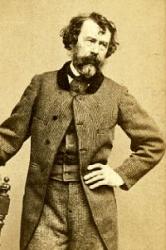
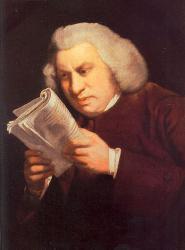
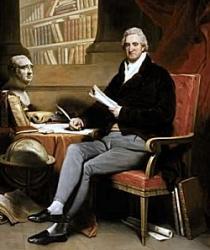

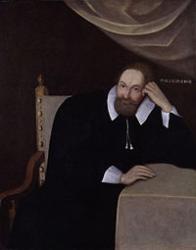
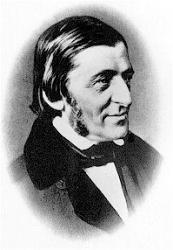
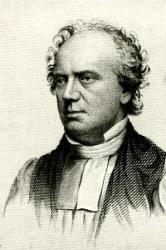

Export as CSV
Nathaniel Parker Willis

1806 - 1867 Person Name: Willis Hymnal Number: a691 Author of "The perfect world by Adam trod" in Hymn Book for Christian Worship. 8th ed. Willis, Nathaniel Parker, was born at Portland, Maine, Jan. 20, 1807, and educated at Yale College, graduating in 1826. After writing for a time for the American Monthly Magazine, which he established, and theNew York Mirror, into which the former was merged, he was attached to the American Legation at the French Court. His stay in Europe extended from 1831 to 1837. On his return he became in 1839 one of the editors of The Corsair. His works are numerous, and include Sacred Poems, 1843. He died Jan. 29, 1867. His sister, Mrs. Parton, is the well-known "Fanny Fern." His hymn —"The perfect world by Adam trod" (Dedication of a Place of Worship), was "Written to be sung at the Consecration of Hanover Street [Unitarian] Church, Boston," in 1826, and since then has been widely used, although of no exceeding merit. [Rev F. M. Bird, M.A.]
-- John Julian, Dictionary of Hymnology (1907)
Nathaniel Parker Willis
Samuel Johnson

1709 - 1784 Person Name: Dr. Johnson Hymnal Number: a41 Author of "O thou whose power o'er moving worlds presides" in Hymn Book for Christian Worship. 8th ed.
Samuel Johnson
William Roscoe

1753 - 1831 Person Name: Roscoe Hymnal Number: a15 Author of "Let one loud song of praise arise" in Hymn Book for Christian Worship. 8th ed. Roscoe, William, the father, was born March 8, 1753, in Liverpool, of humble origin. After very meagre schooling, and three years of work in his father's market garden, he was articled to an attorney, and subsequently practised in Liverpool till 1796, when he withdrew from the profession. From the first literature was his chief delight, and throughout a long career of public usefulness he united its pursuit with the efforts of enlightened patriotism and the advocacy of higher education and reform. Liverpool was a centre of the old slave-trade, and Roscoe was one of the first to raise his voice against the iniquity. At the age of 20 he had already uttered a protest in his descriptive poem Mount Pleasant, and in 1787 he published a longer poem, The Wrongs of Africa (Pt. ii. 1788), devoted to the subject. During his brief parliamentary experience as member for Liverpool, in 1807, he had further opportunity of advocating the cause of liberty and humanity. His first great historical work, the Life of Lorenzo dé Medici, was published in 1796, and the Life and Pontificate of Leo the Tenth, in 1805. After withdrawing from his legal practice, Roscoe had hoped to be able to devote himself entirely to letters, but the claims of friendship induced him in 1800 to enter into a banking business, which involved him in commercial troubles, ending in 1820 in his bankruptcy. His library had to be sold, but part of it was bought by friends, and presented to the Liverpool Athenæum, which in 1789 Roscoe had been instrumental in founding. In 1822 he published Illustrations of the Life of Lorenzo dé Medici, defending the views adopted in his former history, and two years later edited a new edition of Pope's works, with a life of the poet. He died June 30, 1831. (Cf. The Life of William Roscoe, by his son, Henry Roscoe, in 2 vols., London, T. Cadell, 1833.)
As a member of the congregation of Unitarians meeting in Renshaw Street Chapel, Liverpool, Roscoe took part in preparing A Selection of Psalms and Hymns for Public and Private Worship, printed for their use in 1818. He contributed eight hymns and the concluding anthem. Of these hymns the following are in common use at the present time:—
1. Let our loud song of praise arise. Praise.
2. Go, suffering habitant of earth. Life, a Warfare.
3. Great God, beneath Whose piercing eye. Divine Providence.
4. Thus said Jesus, Go and do. Love to our Neighbour.
5. What is the first and great command ? The Commandments.
These hymns are in several Unitarian collections, including Martineau's Hymns, 1840. No. 3 was written in 1788, as a "secular hymn" of ten stanzas, to be sung at the Benn's Garden Chapel on the Centenary of the Revolution.
--John Julian, Dictionary of Hymnology (1907)
William Roscoe
Eliza Lee Cabot Follen

1787 - 1860 Person Name: Mrs. Follen Hymnal Number: a180 Author of "God, thou art good! each perfumed flower" in Hymn Book for Christian Worship. 8th ed. Follen, Eliza Lee, née Cabot, a well-known Unitarian writer, daughter of Samuel Cabot, born at Boston, August 15, 1787, and married, in 1828, to Professor Charles Follen, who perished on board the "Lexington," which was burnt on Long Island Sound, Jan. 13,1840. Mrs. Follen died at Brookline, Mass., 1860. She was a voluminous writer. Her Poems were first published at Boston (Crosby & Co.), 1839, and whilst she was in England she issued another volume for children's use, entitled The Lark and the Linnet, in 1854. Both volumes also contain some translations from the German, and versions of a few Psalms.
Her best known hymns are:—
1. How sweet to be allowed to pray. Resignation. Appeared in the Christian Disciple, Sept., 1818, and in her Poems, 1839, p. 116, in 4 stanzas of 4 lines, and entitled, "Thy will be done."
2. How sweet upon this sacred day. Sunday. In her Poems, 1839, pp. 113-114, in 6 stanzas of 4 lines, and entitled “ Sabbath Day.” It previously appeared in Sabbath Recreations, 1829.
3. Lord, deliver, Thou canst save. Prayer for the Slave. Found in Songs of the Free, 1836; but is not given in her Poems, 1839. In Adams and Chapin's Hymns for Christian Devotion, Boston, U.S., 1846, it is No. 802, in 5 stanzas of 4 lines. In common with No. 2 it has found acceptance out¬side Unitarian Collections.
4. God, Thou art good, each perfumed flower. This is the original of J. H. Gurney's hymn," Yes, God is good," &c. (q.v.) There is some obscurity about the text. It is found in her Hymns for Children, Boston, 1825, beginning, "God is good," each perfumed flower," and this obvious misprint (which destroys the metre) was usually copied in later books. It is also given with the same first line as an original piece, never before published, and signed "E. L. C." (initials of Mrs. Follen's maiden name), in Emily Taylor's Sabbath Recreations, Wellington, Salop, 1826, p. 203. This suggests that it was printed in the American book after the US. was posted to England. Mrs. Follen may have written at first “Yes, God is good," but this cannot now be determined. It begins, “God, Thou art good," &c, in her Poems, 1839, p. 119, and in her verses, The Lark and the Linnet, &c, 1854, and in each case is in 6 stanzas of 4 lines, with the title, "God is Good."
5. Will God, Who made the earth and sea. A Child's Prayer. Given in her Poems, 1839, p. 164, in 7 stanzas of 4 lines. In Dr. Allon's Children's Worship, 1878, No. 212, it is abbreviated to 4 stanzas (i.-iv.), and attributed to H. Bateman in error. [Rev. F. M. Bird, M.A.]
--John Julian, Dictionary of Hymnology (1907)
Eliza Lee Cabot Follen
Sir Henry Wotton

1568 - 1639 Hymnal Number: a466 Author of "How happy is he born and taught" in Hymn Book for Christian Worship. 8th ed. Wotton, Sir Henry, M.A., born in Kent in 1568, and educated at New and at Queen's Colleges, Oxford. After spending nine years on the Continent, on his return he became secretary to Robert, Earl of Essex, with whom he continued until Essex was committed for high treason, when he retired to Florence. There he became known to the Grand Duke of Tuscany, and was sent by him, in the name of "Octavio Baldi," with letters to James VI., King of Scotland, in which the king was informed of a design against his life. On succeeding to the English throne James knighted Wotton and sent him as ambassador to the Republic of Venice. In 1623 he was made Provost of Eton (having previously taken Deacon's Orders). He died in 1639. His works include The Elements of Architecture, Parallel between the Earl of Essex and the Duke of Buckingham, Essay on Education, &c. His poems and other matters found in his manuscripts were published posthumously by Izaak Walton in 1651, as Reliquiae Wottonianae. This has been several times reprinted
--John Julian, Dictionary of Hymnology (1907)
Sir Henry Wotton
Ralph Waldo Emerson

1803 - 1882 Person Name: R. W. Emerson Hymnal Number: a692 Author of "We love the venerable house" in Hymn Book for Christian Worship. 8th ed. Emerson, Ralph Waldo, son of an Unitarian Minister, was born at Boston, U.S., May 25, 1803. He was educated for the Unitarian Ministry, and acted, 1829-32, as one of their ministers. Ultimately he left the ministry, and devoted himself to lecturing and literature. As a philosopher, essayist, and poet he rose to a distinguished position. He died at Concord, Massachusetts, April 27, 1882. His published works include Poems, 1846; Orations, Lectures, and Addresses, 1844; Representative Men, 1850; English Traits, 1856, &c. His hymns are not numerous.
They include:—
1. Out from the heart of nature rolled. The Everlasting Word. This is part of his poem The Problem, published in the Dial, July, 1840; and then in the 1st ed. of his Poems, 1846. It was included in the Hymns of the Spirit, 1864, No. 636; and Martineau's Hymns, &c, 1873, No. 112.
2. We love the venerable house. The House of God. Written in 1833, for the Ordination of the Rev. Chandler Bobbins, who succeeded Emerson as Minister of the Second (Unitarian) Church, Boston. It is in the Hymns of thd Spirit, 1864, No. 224; and Martineau's Hymns of Praise and Prayer, 1873.
-- John Julian, Dictionary of Hymnology (1907)
Ralph Waldo Emerson
William Crosswell

1804 - 1851 Person Name: Crosswell Hymnal Number: a711 Author of "Lord, lead the way the Saviour went" in Hymn Book for Christian Worship. 8th ed. Crosswell, William, D.D., was born at Hudson, N.Y., Nov. 7, 1804; graduated at Yale College, 1822; entered for a time upon law studies, but eventually he entered Hartford College as a Theological Student, and then took Holy Orders in the Protestant Episcopal Church in 1829. In 1829 he became Rector of Christ Church, Boston; in 1840, of St. Peter's, Auburn, New York; and in 1844, of the Church of the Advent, Boston. Died suddenly at Boston, Nov. 9, 1851. Whilst at Hartford he assisted, during 1827-28, in editing The Watchman, and contributed to it many of his poetical pieces. His Memoir was written by his father, the Rev. Dr. Crosswell, of New Haven; and his Poems, collected by his father, were edited, with a short Memoir, by Dr. (now Bishop) Coxe, and published at Boston in 1800. Of his hymns the folowing are in common use:—
1. Lord, go with us, and we go. Journeying. This in Hymns for the Church and Home, 1860, No. 212, is a portion of his "Traveller's Hymn," first published in 1833. Concerning it Dr. Coxe says, "When on a journey with him, I reminded him of his 'Traveller's Hymn,' which I had seen but could not remember; and he told me, if I recollect aright, that it was a sort of Impromptu, which bubbled up when he was going with Dr. Wainwright from Boston to New York to attend the General Convention" (Memoir, p. xlii.); and in his notes, p. 282, he indirectly fixes the date of composition as 1832. Orig. text in 2 stanzas of 8 lines, in Poems, p. 255.
2. Lord, lead the way the Saviour went. For Sisters of Mercy. Written in 1831 for the Howard Benevolent Society of Boston. Dr. Coxe has entitled it "Hymn forSisters of Mercy," and says he "ventured to give it a name suited to the present state of the Church, in which Deaconesses and Sisters of Mercy are among other realizations of the poet's ardent hopes. Perhaps we owe them to his faithful prayers." (Notes to the Poems, p. 283.) It is generally accepted as the best American hymn for benevolent occasions. Original text, Poems, p. 256.
3. Now gird your patient loins again. Advent. This hymn for Advent is in 3 stanzas of 4 lines. Poems, p. 209; Hymns for Church and Home, No. 55.
4. 0 Saviour, leave us not alone. Lent. This is from his hymn for Lent beginning, "Thou who, for forty days and nights," in 4 stanzas of 4 double lines. In its abbreviated form it is found in Hymns for Church and Home, No. 85. Original in Poems, p. 219, in 4 stanzas of 4 double lines.
5. We come not with a costly store. Epiphany. For the Epiphany, from his Poems, p. 215, and based upon the Gospel of the day, in 2 stanzas of 8 lines.
6. And now the solemn rite is past. Ordination. This is composed of stanzas vii., viii. of his poem, "The Ordinal," in Poems, pp. 69-71, slightly altered. "The Ordinal" was written in 1828, and describes minutely his own ordination at his father's church, at New Haven, and the feel¬ings inspired, by the solemnity. It was printed in The Watchman, 1828. (Poems, Preface, p. xxvii.) The portion given as "And now the solemn rite is past" was included in Hall's Mitre, 1836.
Dr. Crosswell also translated the "Veni, Creator Spiritus" as "Creator, Spirit, come and bless us." His hymns are mostly unknown to the English collections. [Rev. F. M. Bird, M.A.]
--John Julian, Dictionary of Hymnology (1907)
=================
Crosswell, W., p. 269, ii. On the title-page of his Poems, 1861, this author is given as W. Croswell, and the best authorities are in favour of this spelling of the name.
--John Julian, Dictionary of Hymnology, New Supplement (1907)
William Crosswell
Daniel Turner
1710 - 1798 Person Name: Turner Hymnal Number: a463 Author of "Faith adds new charms to earthly bliss" in Hymn Book for Christian Worship. 8th ed. Turner, Daniel, M.A., was born at Blackwater Park, near St. Albans, March 1, 1710. Having received a good classical education, he for some years kept a boarding-school at Hemel Hempstead, but in 1741 he became pastor of the Baptist church, Reading. Thence he removed, in 1748, to Abingdon, and continued pastor of the Baptist church there until his death on Sept. 5, 1798. He was much respected throughout his denomination, and was the friend and correspondent of Robert Robinson, Dr. Rippon, and other eminent men of that day. He probably received the honorary degree of M.A. from the Baptist College, Providence, Rhode Island. Turner was the author of works on Open Communion and Social Religion; also of Short Meditations on Select Portions of Scripture. His Divine Songs, Hymns and other Poems were published in 1747, and his work, Poems Devotional and Moral, was printed for private circulation in 1794. Four of his hymns are in the Bristol Baptist Collection of Ash & Evans (1769), and eight (including the four already named) in Rippon's Baptist Selection 1787). Only the following are now in common use:—
1. Faith adds new charms to earthly bliss (1769). Excellence of Faith.
2. Jesus, full of all compassion (1769). Sinner's appeal to Christ.
3. Lord of hosts, how lovely fair (1787). Divine Worship. Altered in Baptist Psalms and Hymns, 1858, to “Lord of hosts, how bright, how fair!"
The well-known hymn "Beyond the glittering starry skies," in its enlarged form of 28 stanzas, was the joint production of Turner and his brother-in-law, the Rev. J. Fanch. [Rev. W. R. Stevenson, M.A.]
-- John Julian, Dictionary of Hymnology (1907)
Daniel Turner
Jane Cotterill
1790 - 1825 Person Name: Mrs. Cotterill Hymnal Number: a568 Author of "O thou, who hast at thy command" in Hymn Book for Christian Worship. 8th ed. Cotterill, Jane, née Boak, daughter of Rev. John Boak, and mother of the Right Rev. Henry Cotterill, Bishop of Edinburgh; born in 1790, married 1811 to the Rev. Joseph Cotterill; died 1825. Mrs. Cotterill contributed to the Appendix to the 6th ed. of Cotterill’s Selection, 1815, the following hymns:—
1. "O! from the world's vile slavery," (For Holiness). 2. "O Thou! Who hast at Thy command," (For Resignation). These hymns were repeated in Montgomery's Christian Psalmist, 1825, and Mrs. Cotterill's name was appended thereto for the first time. Their use is not extensive. The first, "O! from the world's," &c, is found in Kennedy, 1863, No. 521, as, "From this enslaving world's control," the alterations being by Dr. Kennedy.
--John Julian, Dictionary of Hymnology (1907)
Jane Cotterill
Sir Walter Scott

1771 - 1832 Person Name: Sir W. Scott Hymnal Number: a585 Author of "When Israel, of the Lord beloved" in Hymn Book for Christian Worship. 8th ed. Walter Scott was born in Edinburgh, August 15, 1771. In 1786, he commenced his apprenticeship as writer to the Signet. In 1796, he first appeared before the public in a translation of Burger's "William and Helen." Many poetical works followed, until in 1814, he began the series of "Waverly Novels." He died at Abbotsford, September 21, 1832. It is related that on his death-bed he distinctly repeated portions of the Latin original, upon which "That day of wrath, that dreadful day" is based.
--Annotations of the Hymnal, Charles Hutchins, M.A., 1872
======================
Scott, Sir Walter, Bart., was born in Edinburgh, Aug. 15, 1771, and died at Abbotsford, Sept. 21, 1832. Although so successful and widely known as a poet, he made no direct contributions to hymnody whatever. His condensed rendering of the “Dies Irae", and his hymn of Rebecca in Ivanhoe, "When Israel of the Lord beloved" (q.v.) were utilized as hymns for congregational use by others, but were never intended for such a purpose by himself. His work and rank as poet, novelist, and historian are fully set forth in his Life by J. G. Lockhart.
--John Julian, Dictionary of Hymnology (1907)
Sir Walter Scott


 My Starred Hymns
My Starred Hymns

